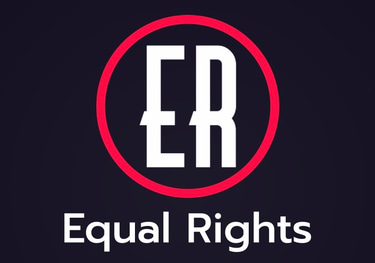Breaking Down Oregon's Anti-Discrimination Laws:
What You Need to Know
Kylo B
4/19/2024
Breaking Down Oregon's Anti-Discrimination Laws: What You Need to Know
Oregon has comprehensive anti-discrimination laws designed to protect individuals from discrimination based on various protected characteristics.
Understanding these laws is essential for both employers and employees to promote equality and prevent discriminatory practices in the workplace and beyond.
In this article, we will break down Oregon's anti-discrimination laws and discuss what individuals need to know to safeguard their rights.
Overview of Protected Characteristics
Oregon's anti-discrimination laws prohibit discrimination based on several protected characteristics, including but not limited to:
Race: Discrimination based on race, color, or national origin.
Sex: Discrimination based on sex, including pregnancy, childbirth, and related medical conditions.
Age: Discrimination against individuals who are 18 years of age or older.
Disability: Discrimination based on physical or mental disability.
Sexual Orientation: Discrimination based on sexual orientation, gender identity, or gender expression.
Marital Status: Discrimination based on marital status.
Religion: Discrimination based on religion or religious beliefs.
Veteran Status: Discrimination against veterans.
Employment Discrimination Laws
Oregon's anti-discrimination laws apply to employment practices and prohibit discrimination in hiring, promotion, compensation, terms and conditions of employment, and termination based on the protected characteristics mentioned above.
Employers are also required to provide reasonable accommodations for employees with disabilities, unless it causes undue hardship to the employer.
Housing Discrimination Laws
In addition to employment, Oregon's anti-discrimination laws protect individuals from housing discrimination.
It is illegal to refuse to sell, rent, or lease housing based on a person's protected characteristics.
Landlords must also provide reasonable accommodations for tenants with disabilities.
Public Accommodations & Services
Oregon's laws prohibit discrimination in places of public accommodation and services, including restaurants, hotels, retail stores, and healthcare facilities.
Individuals cannot be denied services or treated unfairly based on their protected characteristics.
Enforcement & Remedies
Individuals who believe they have been discriminated against in violation of Oregon's anti-discrimination laws can file a complaint with the Oregon Bureau of Labor and Industries (BOLI).
BOLI investigates complaints of discrimination and harassment and may take remedial actions, including ordering reinstatement, back pay, compensatory damages, and civil penalties against the offending party.
Additional Considerations
It's important for employers to implement anti-discrimination policies and provide training to employees to ensure compliance with Oregon's laws.
Employers should also maintain records and documentation related to hiring, promotion, and discipline practices to demonstrate non-discrimination.
Oregon's anti-discrimination laws play a crucial role in promoting fairness, equality, and inclusivity in employment, housing, and public accommodations.
By understanding and upholding these laws, individuals and organizations contribute to creating a more equitable society where everyone is treated with dignity and respect regardless of their protected characteristics.
Awareness of these laws empowers individuals to assert their rights and seek recourse in cases of discrimination, ultimately fostering a more just and inclusive Oregon for all.
